Introduction
Gum disease is a very common dental problem, which includes two forms - gingivitis and periodontal disease or periodontitis. It is basically in inflammation of the gums or gingival, which starts with tender and slightly swollen gums that bleed, especially while brushing or chewing hard foods, and eventually, if untreated, progresses affecting not only the gums but also the teeth and the jaw bone.
Gum disease may be common, but that does not mean it should not be taken seriously. In severe cases, it leads to teeth loss, and it always causes significant discomfort, pain, swelling, bleeding, bad breath, it increases the risk of tooth decay, various infections and complications.
Gum disease can be prevented very easily, by following simple steps that should always be part of the daily dental hygiene routine.
Prevention of gum disease
The basic step in prevention of gum disease is proper dental hygiene. Brushing and flossing are essential parts of that routine. Brushing should be done daily, in the morning and in the evening, as well as after meals. The toothpaste should contain fluoride and the brushing should include cleaning of all parts of the mouth, including the tongue.
After brushing, it is necessary to floss, at least once a day. Flossing is done with the purpose to remove the food particles and debris between the teeth, where the toothbrush cannot reach. This is very important in prevention of plaque, which, if progresses, can turn into solidified layers that cannot be removed easily.
Using an antibacterial mouthwash after brushing and flossing is another way of prevention against gum disease. There are many different types of mouthwash, and those that contain fluoride or anti-plaque agents are highly recommended.
Since the vital step in prevention of gum disease is to remove all possible plaque, it is helpful to periodically use disclosing tablets. These chewable tablets change color in case any plaque is still present even after brushing and flossing.
Dietary habits are also important. Sugary and starchy foods like candy, chocolate, cookies, taffy, lollipops, potato chips and similar contribute to the build-up of plaque and their consumption should be reduced.
On the other hand, certain foods are beneficial in the prevention of plaque and gum disease, and they include dairy products, especially milk, yogurt and cheese, peanuts and raisins.
Quitting smoking, starting eating healthy and having regular check-ups at the dentist’s office are also vital in the prevention of gum disease.




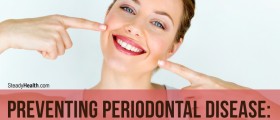
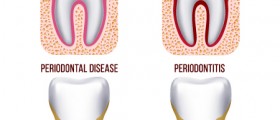
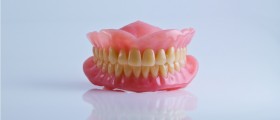

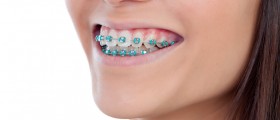

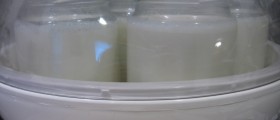



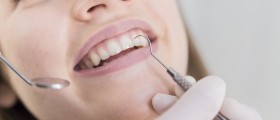


Your thoughts on this
Loading...